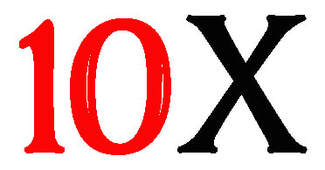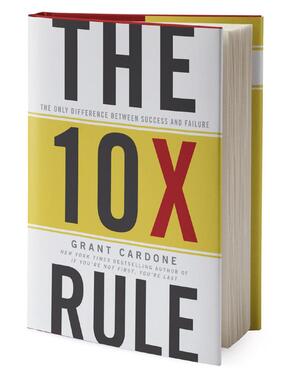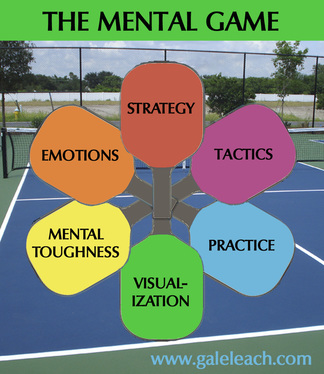
The book I came across recently is about setting goals that are 10 times greater than you think you can achieve. Why? A goal that's 10X greater provides the impetus—the motivation—to invest the effort it will take to get you to that goal. Without this 10X goal setting, you won't have the energy and other resources to overcome the setbacks that are sure to occur (sick kids, the need to travel, etc.).
I've written other articles about the mind game and how it affects your performance in pickleball. Most players set their pickleball goal to reach the next level, say from 2.0 to 2.5 or 3.0. Once that level is reached, they focus on the next goal. Ultimately, most fail to get beyond 3.0 or 3.5. What might have happened if they'd focused on 5.0?

Cardone rejects the idea of incremental targets (like 3.5), saying, "If you start any task with a mind toward limiting the potential outcome, you will limit the actions necessary to accomplish that very goal." Ultimately, Cardone says you must set a goal that is 10X greater than what you think you want. Then you must do 10X more than you think it will take to accomplish that goal.
I bet you're thinking this is ridiculous, because you can't be rated 10X more highly than where you are now. But you're ignoring the mindset that will get you to any higher level. Following this strategy, even if you never make it to 5.0 or become a master pickleball tournament winner, you'll have achieved much more than if you only tried to reach 3.5.
With any goal, we are optimistic and tend to underestimate the amount of effort and time that will be necessary to complete it. Obstacles get in the way. We lose focus. All of this is a natural part of the process. The optimistic attitude leads people to miscalculate the amount of effort and time required, and our plans usually ignore possible challenges altogether. When we fail, we typically set the bar lower. What we should do is work even harder.
The process Cardone (and others) recommends is to write down your goal(s). To do this, you must first identify what you want. Is your desire to play in a local tournament? Then make that bigger: you want to win local pickleball tournaments while rising to a 5.0 Master rating.
Putting your goal in writing is important. Write it in present tense, as if you've already achieved it: "I am a 5.0 Master-rated pickleball player who consistently wins tournaments." Like an affirmation that will become ingrained as a belief, write it twice a day (morning and night). (I've read other places that you ought to say it out loud with conviction, too.)
All of this may sound silly, but a famed Harvard study about goal-setting asked MBA program participants, “Have you set clear, written goals for your future and made plans to accomplish them?” Most (84%) had no specific goals, 13% had goals but hadn't put them in writing, and only 3% had written goals. Ten years later, the 13% with unwritten goals earned twice as much as the 84% with no goals. The 3% with written goals earned 10X more than all the rest put together.
Will writing and speaking your goals get you there? Of course not—not that alone. Add these tools to your arsenal of routines. You'll have lots of hard work and practice to do. But with an idea of where you're headed, you're much more likely to get there. And, since you're aiming higher, you'll go farther, too.



 RSS Feed
RSS Feed